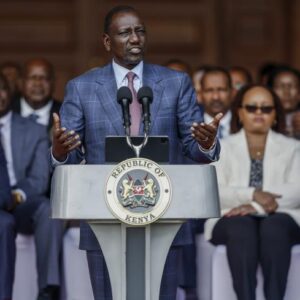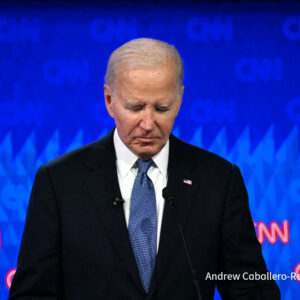According to the American media CNN, gang leader Vitel’homme Innocent would have played an important role as part of efforts by the United States to repatriate the bodies of the two young American missionaries killed in Haiti,
During a phone call with several gang leaders, Vitel’homme Innocent – a gang leader whose armed group Kraze Baryé allegedly negotiated with certain American authorities in order to facilitate the recovery of the bodies of the two Americans murdered in Lizon
Innocent himself is the subject of a $2 million bounty for alleged kidnappings of American citizens, which he disputes, saying he hopes to defend himself one day, notes the American network
When a government or a state official negotiates with armed criminal gangs responsible for numerous abuses such as rapes and assassinations, the population could interpret this in different ways.
Some might see this as a sign of weakness or capitulation to the threat, while others might perceive it as a pragmatic attempt to resolve complex security issues.
There could also be concerns about the ethical or political compromises needed to reach an agreement, as well as questions about the long-term consequences of such negotiations for stability and national security.
Here are five potential negative aspects associated with negotiating government with terrorists and armed criminal gangs:
1. **Legitimization of violence :** By negotiating with criminal and terrorist groups, the government may unintentionally legitimize their violent actions, granting them some form of recognition or validation of their methods.
2. **Normalization risk :** Negotiating with these groups can set a dangerous precedent, normalizing the use of violence as a means to achieve political or criminal ends. This could encourage other groups to adopt similar tactics to obtain concessions.
3. **Weakening of the rule of law :** By giving in to the demands of criminal groups, the government risks compromising the rule of law and the authority of its institutions. This can undermine public trust in government and will undermine the effectiveness of justice systems.
4. **Strengthening of criminal groups :** Negotiation could strengthen the position of criminal groups by providing them with resources, territory or other advantages that could be used to perpetuate their criminal activities and increase their influence.
5. **Demoralization of security forces :** Security forces may feel demoralized or betrayed if the government appears to capitulate to threats rather than maintain a firm line against crime and terrorism. This could compromise their effectiveness and commitment to maintaining public safety.
In view of these negative aspects that negotiations with criminal gang leaders like Vitel’homme Innocent can bring, many wonder what is the precise message that is sent to the National Police of Haiti (PNH) and to the population through this approach from the American Embassy which at the same time declares that these criminals must go to prison or “nan peyi san chapo”?
What will be the position of the new Prime Minister Garry Conille in the face of the armed criminal gangs who have bereaved the population for several years?









